Negotiating Political and Social Space Over Migration – PrepareCenter
Humanitarian Service Points negotiate with governments and build community partnerships to reduce controversy over migration rights.
Basic principles
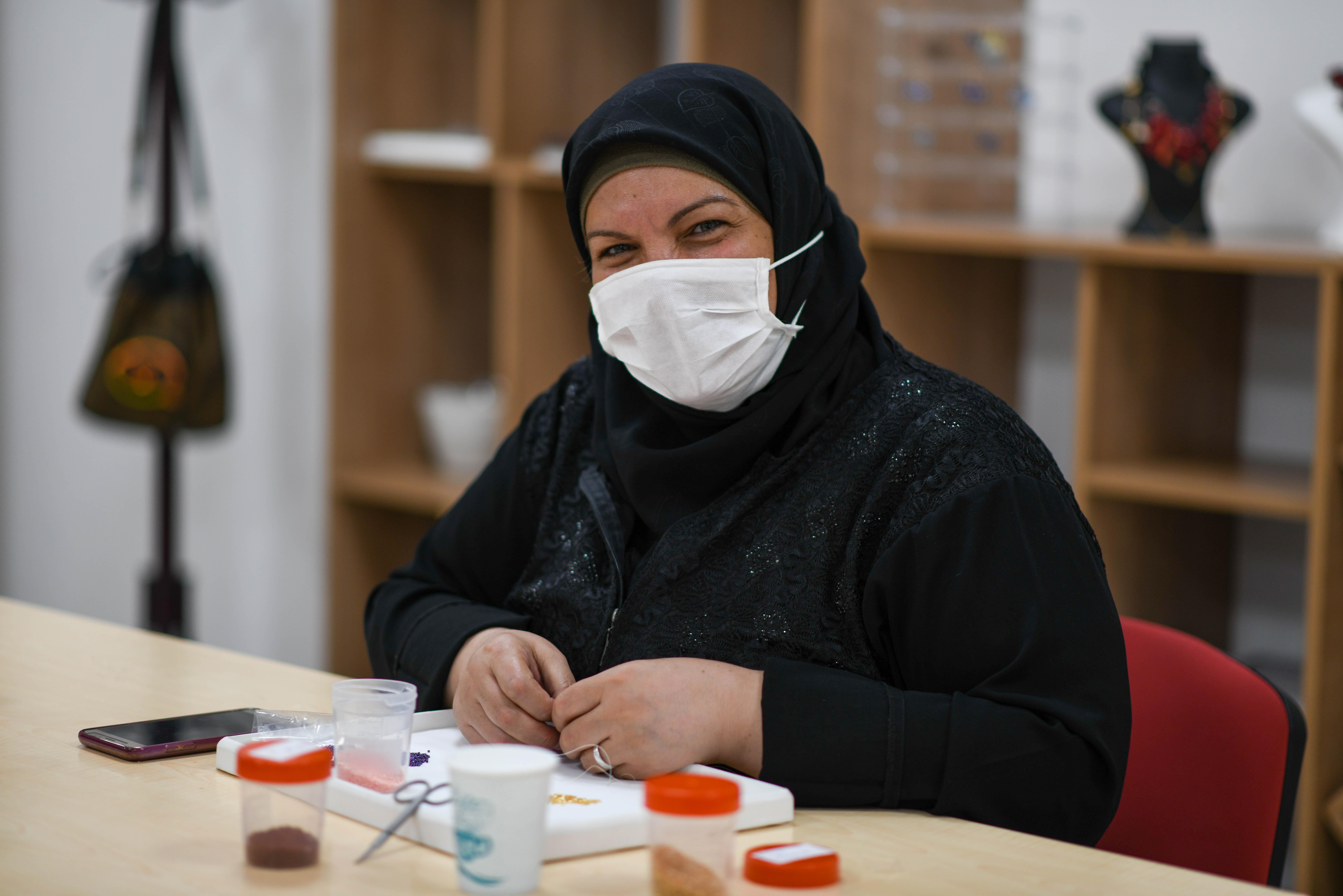
Migrants – including irregular migrants – are entitled to a full range of rights under international law.
This includes having their basic needs met, but also rights that can be more challenging to fulfill - such as the right to education and to work for a decent wage in safe and healthy conditions.
States have made specific commitments to uphold these rights in the New York Declaration for Refugees and Migrants and the Global Compact for Migration. For example, to:
“Ensure that cooperation between service providers and immigration authorities does not exacerbate vulnerabilities of irregular migrants by compromising their safe access to basic services or unlawfully infringing upon the human rights to privacy, liberty and security of person at places of basic service delivery.”
Global Compact for Safe, Orderly and Regular Migration, Para 31(b).
Engaging Governments
Framework agreement with government:

A framework agreement with authorities can establish the basic concept of HSPs, what kinds of services will be offered and how.
It can form the basis for an agreement between the government and the NS about the independence of HSPs from government interference.
Ideally, it should be put in place before the HSP is established.
- Authorities will not seek to identify, monitor or detain persons for purposes of enforcement of immigration law or regulations while they are accessing services;
- National Society staff and volunteers can provide humanitarian assistance to migrants irrespective of legal status without facing legal consequences for themselves or the NS, both on the premises of the HSP and in work connected with it (e.g. when staff or volunteers accompany migrants to facilitate their access to other services);
- Data collected at or through HSPs will not be requested by government authorities or used for the purpose of immigration enforcement (‘firewalls’)
National Societies should provide assurances that HSPs will be operated solely to provide neutral, impartial humanitarian assistance. They will also assure that all necessary safeguarding measures will be taken.
In some cases, it may be appropriate to have a written agreement or memorandum of understanding to ensure these agreements are clear.
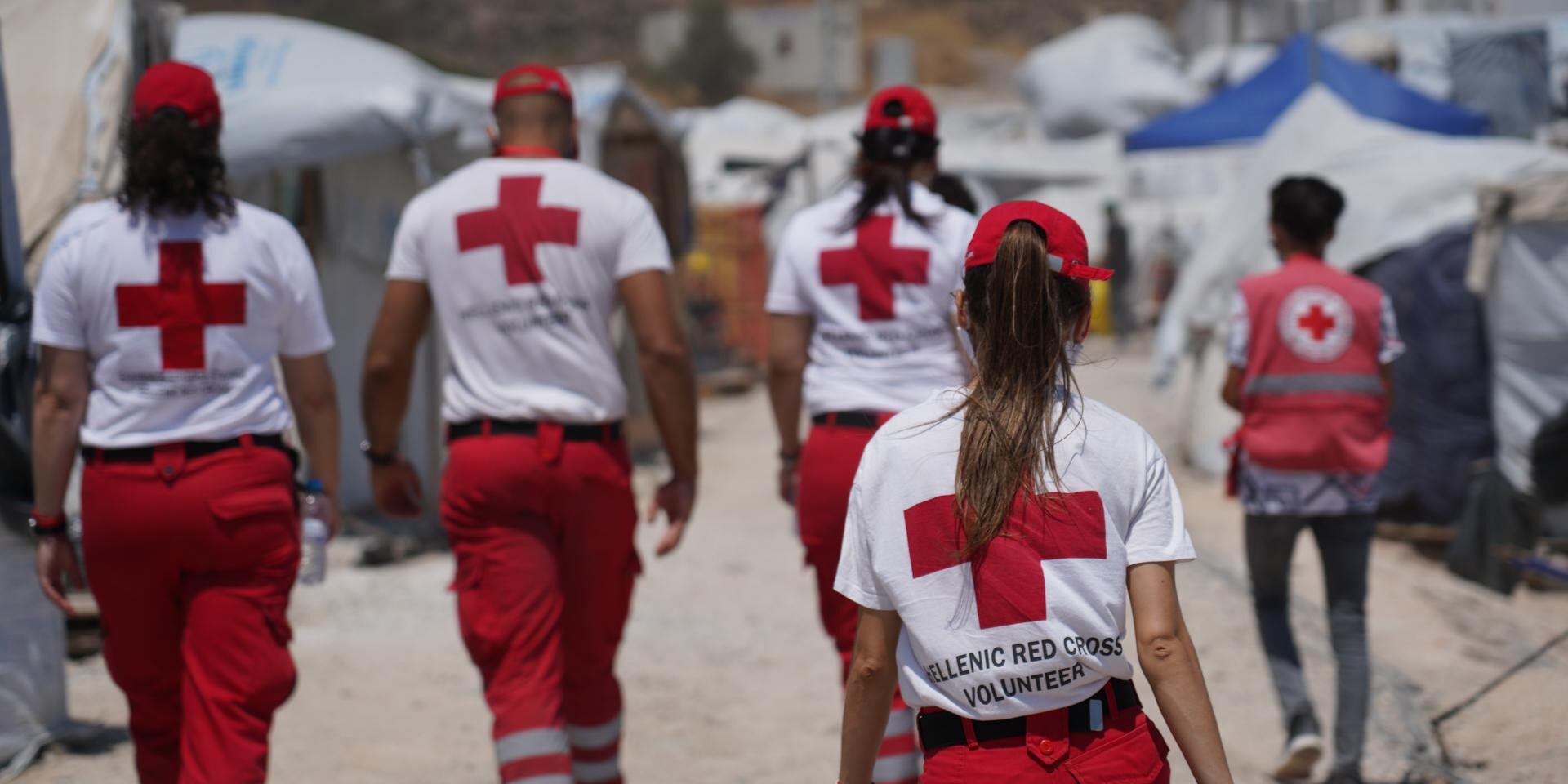
Operational agreement with government and civil society institutions:
Once the broad framework is established with government at the national and/or regional levels, it is time to establish working agreements with other parts of government.
A stakeholder analysis should be conducted before opening an HSP.
Think broadly about potential issues that might arise, including synergies that could lead to partnerships.
- Ministries or departments (health, social affairs, education, etc.) about the type of services, any limits to them, and how they will be regulated. Consideration should be given to how access can be facilitated to services such as shelters for victims of violence, including SGBV.
- Police and local security actors about how disturbances or insecurity are managed. For example, agreement that police will notify before visiting in case of issues (e.g. complaints about noise), allowing migrants with prior traumatic experiences to absent themselves.
- Local councils or other bodies representing communities where the HSP is based, to inform and consult, and to agree on how the information will be shared and issues resolved;
- Relevant civil society organisations and institutions, such as places of worship, community centres, schools and training institutions, women’s groups, migrant and refugee-led organisations, and others that may wish to be involved or ask questions about the services.
- Other organisations, national and international, providing services to migrants, as well as services for other vulnerable groups such as shelters, safe houses, and food kitchens.
Engaging Staff and Volunteers
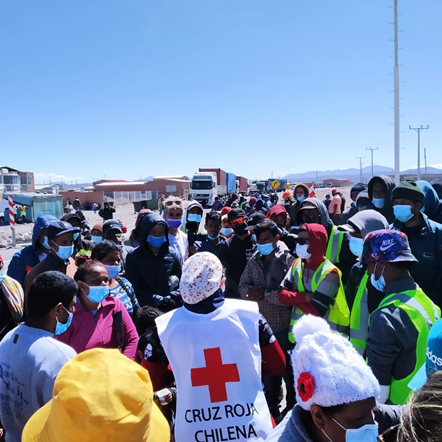
RCRC staff and volunteers are involved in every aspect of their communities and can be invaluable ambassadors for migrants.
In some cases, they are, themselves, migrants. But sometimes staff and volunteers lack confidence in speaking with communities.
Begin outreach with staff and volunteers first, ensuring they fully understand the issues and challenges migrants face.
Invite migrants to talk to staff and volunteers, or use a range of educational initiatives, awareness-raising activities, and training tools.
Engaging local communities
Consider how you will engage the local community. Perhaps hold an open house for community members, allowing people to visit the HSP to see and learn more about the activities there. Take opportunities at community gatherings or events to share information about migration, the skills and experiences of migrants, and the challenges they face. Encourage migrants to act as ambassadors and liaisons with individuals and groups in the wider community.
AVAIL is focused on Amplifying the Voices of Asylum Seekers and Refugees for Integration and Life Skills.
It consists of a variety of initiatives in Britain, Ireland, Italy, and Latvia to help improve the connection and understanding between new migrants and host communities.
This includes media initiatives, such as radio programmes, as well as in-person engagement through sport, budding, and mentorship. In the UK, the VOICES Network helps ensure refugee and asylum seekers have a voice in the programmes and policies that affect them.
Hold brainstorming sessions with staff, volunteers, migrants, and local community representatives about where there might be challenges or conflicts with other organisations or activities.
Sit with local communities and talk about points of synergy as well as possible conflicts. Identify possible solutions before problems emerge. For example, if there is a food bank or soup kitchen nearby, can migrants have access? How can the additional demand be accommodated to ensure there is enough for all? How can services for migrants benefit other groups in the community?
Consider challenging issues such as how to manage refuse or waste created by the HSP and its visitors, and any unease connected with the presence of groups of migrants – for example young men.
Extracted from Report: Emergency returns from Libya and Niger, Medico International, July 2020 p. 11.
Preparing for partnership
Migrants require a wide range of services, and no one organisation is capable of providing them all. HSPs can and should involve a wide range of partners, including actors that are:
Before entering into a partnership with another organisation, it is important to understand how they work and with whom. It is also important to understand how partners are perceived by migrants. All of the hard work to build trust with migrants can quickly be undone if we partner with organisations seen as untrustworthy.
Check out the Partnership Checklist for a list of possible questions to ask prospective partners, and section Data Protection and section Safe Referral.
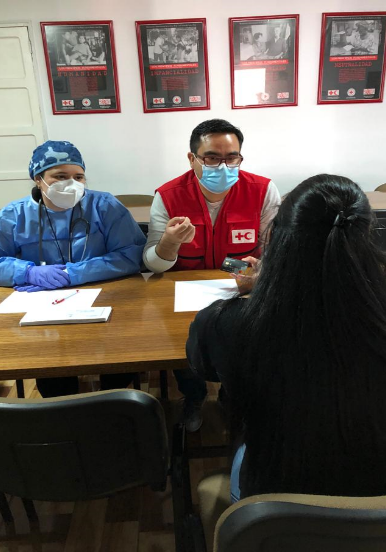
During a group discussion, a migrant explained his experiences of ending up in a Libyan detention centre where he no longer had a choice than to return: “The second time we were stopped in the sea, IOM took care of us. [....] We were not allowed to leave the centre. When IOM comes, they tell you, if you don’t go home, you will not leave the centre.” Another Malian returned migrant voiced his lack of choice about returning in the following manner: “We did not have a choice to accept the return or not. [...] IOM will threaten you if you say you want to stay.” Despite the humanitarian rationale of return operations from Libya, migrants thus also experience the work of IOM as controlling their scope of mobility and choice. It is important to keep in mind that from the perspective of a detainee, distinctions between IOM staff and Libyan authorities are difficult to operate and uphold. So one Malian migrant reported: “When we were on the road to the airport, they were hitting us with their guns.” But IOM policy does not allow IOM staff to carry or use guns, nor to use force when migrants embark on planes.
Extracted from Report: Emergency returns from Libya and Niger, Medico International, July 2020 p. 11.
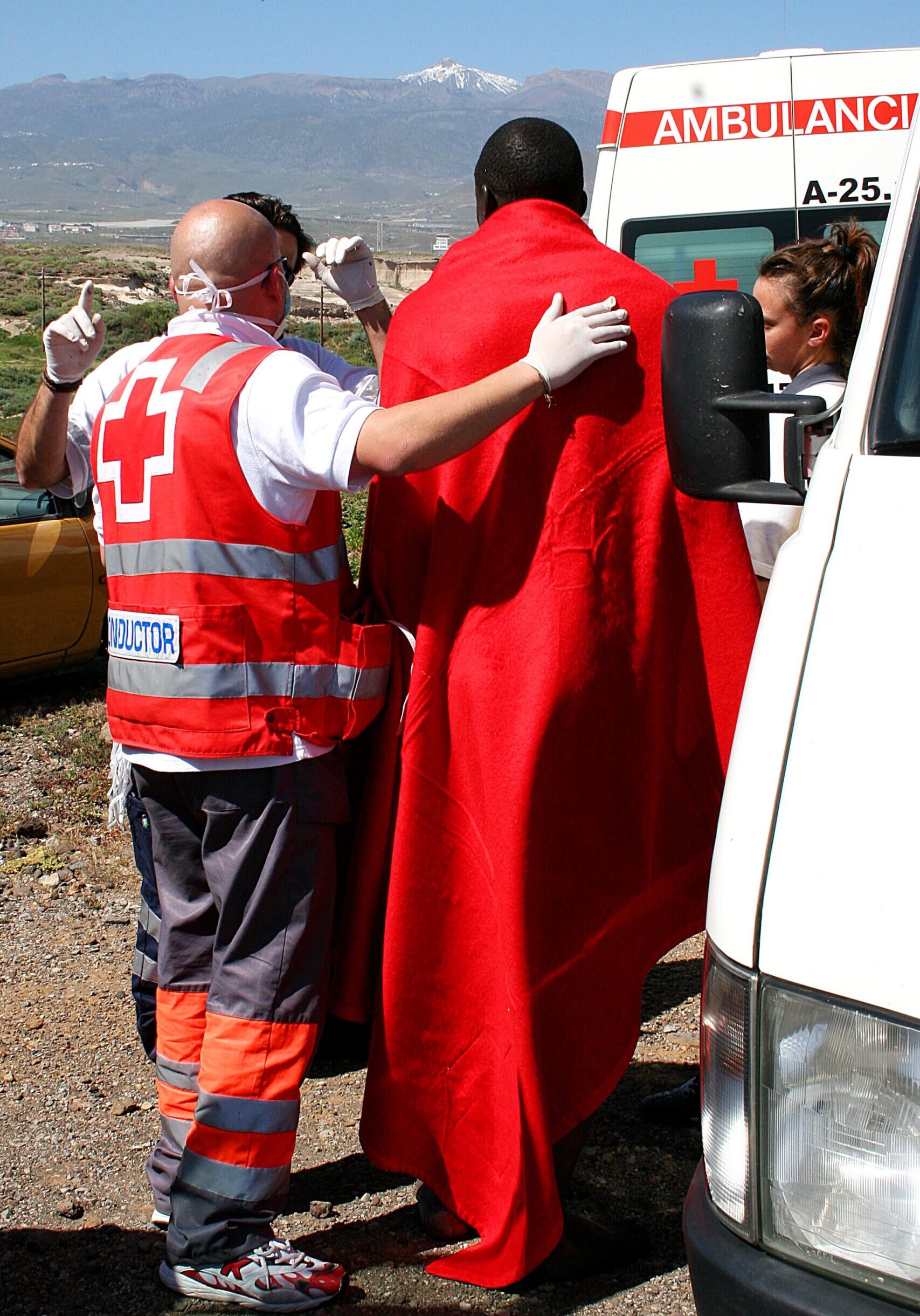
Humanitarian Diplomacy
The IFRC Humanitarian Diplomacy policy affirms that “the decision to engage in humanitarian diplomacy is not a choice, but a responsibility.”
Migrants often come to HSPs when they are at risk or struggling to access services. Therefore information from HSPs can be extremely useful in identifying where governments may not be fulfilling their obligations and where there is a need for humanitarian diplomacy.
Some NS struggle with humanitarian diplomacy, especially when migration is highly politicised and there is strong anti-migrant sentiment. Some NS argue that, in these cases, humanitarian diplomacy amounts to engaging in controversies of a political, racial, religious, or ideological nature, and conflicts with the principle of neutrality. It is to both fulfill the responsibility to remain neutral and the responsibility to engage in humanitarian diplomacy.
Framing discussions in terms of the humanitarian imperative can help depoliticise these discussions. This allows, the Red Cross and Red Crescent to speak about humanitarian needs in general, rather than about legal status, or a country’s hosting capacity, for example.
- Humanitarian diplomacy does not need to be public or aggressive. It can also mean acting on a case-by-case basis, e.g. quietly insisting that government officials respect migrants’ rights or challenging when staff or volunteers are penalised for providing assistance.
- Humanitarian diplomacy can be done at very local and operational levels.
- Effective use of partnerships, especially with IFRC and ICRC, can mitigate risk. Develop shared approaches that maximise the strengths and capacities of each partner. Be pragmatic and strategic, allowing those more comfortable with public advocacy to take centre stage, while those with higher levels of operational risk work behind-the-scenes.
- Protect migrants from death, disappearance, family separation and violations of their rights.
- Ensure migrants, irrespective of legal status, have effective access to essential services.
- Support access to information about the rights of all migrants.
- Ensure clear separation between immigration authorities and other law enforcement authorities and public services (“firewalls”).
- Guarantee effective access to justice for migrants in an irregular situation.
- Facilitate migrants’ access to a secure and dignified status.
- Detain only as a measure of last resort, and abstain from detaining children.
- Ensure return procedures comply with fundamental rights.
IFRC, The Global Compact for Migration: From words to action, (2018) and Red Cross EU Office, Protecting the dignity and rights of migrants in an irregular situation, 29 July 2016
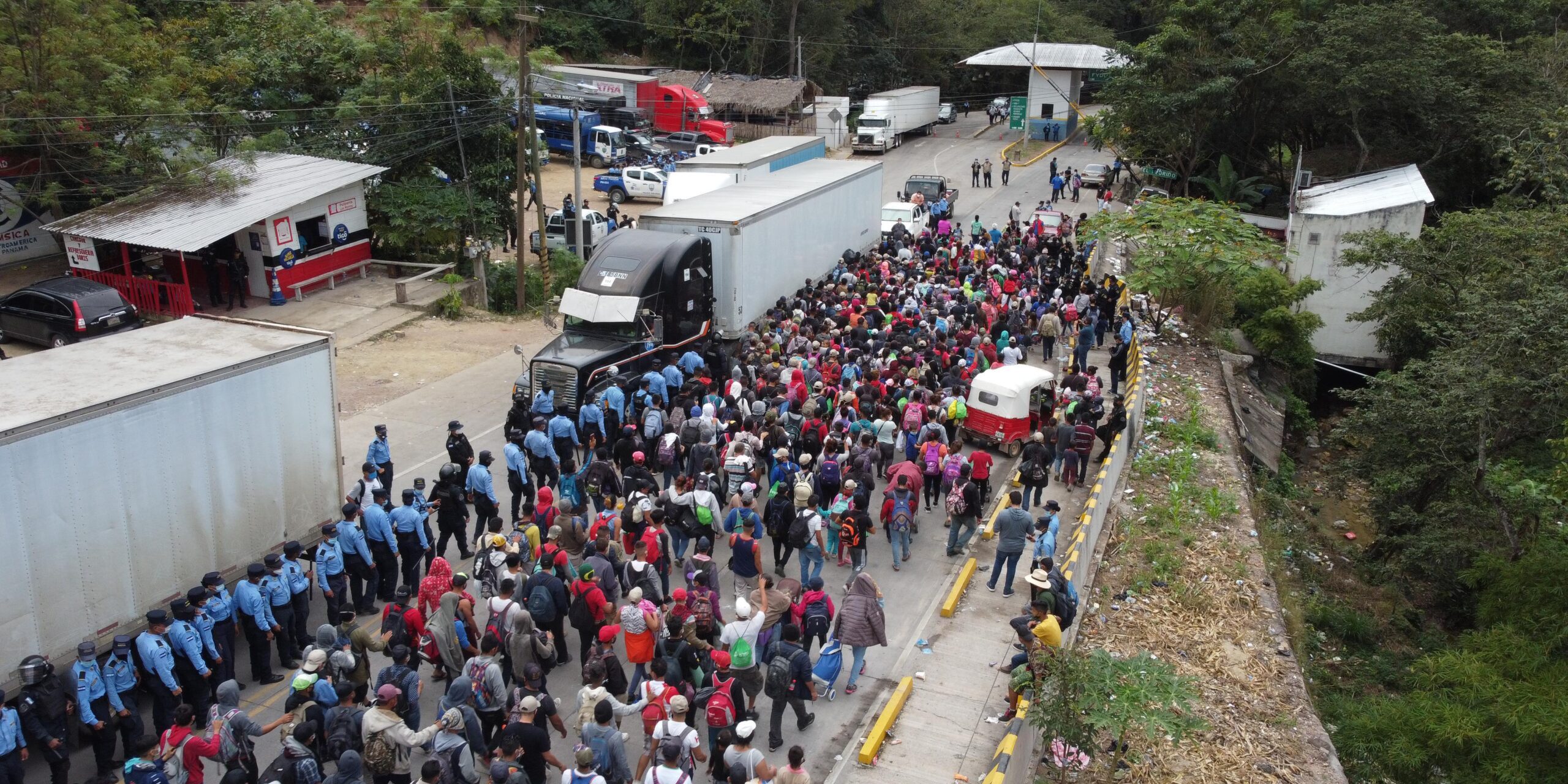
Special Challenges: The case of return
National Societies must always avoid being perceived as supporting coercive action.
Research has shown even “voluntary” return is often experienced by migrants as coerced, with a negative impact on the perception of and trust in agencies involved.
This does not mean services should not be provided to returnees, but it is important to be aware of perceptions and political dynamics.
National Societies have identified assistance to migrants in return as a programming area of special complexity.
Particularly challenging – and highly politicised – situations in recent years include people being forced back from Europe’s borders to Libya, migrants being pushed back to Niger from Algeria, and Hondurans being returned in large numbers and dropped unceremoniously just across the border.
- HSPs are not intended to particularly serve returning migrants. This is especially true in contexts of forced return/return under duress. These contexts require a specific approach.
- HSPs are distinct from “reception centres”, which are typically established by government to receive and register large number of migrants.
- HSPs focusing on returnees may be appropriate under specific circumstances, e.g. voluntary and spontaneous return of migrants from seasonal work or due to emergency (e.g. covid 19).
- National Societies should not discriminate on the basis of migration status, but should be aware of the status of people accessing HSPs.
- Migrants, local community and authorities may believe service-providers are encouraging or discouraging migration. NS should assess potential risks to the perception of its services, the emblem and/or the Movement.
“Return to the place of origin is not the necessary end or solution of migration. Migrants may prefer to stay where they are, for an extended period or permanently. While providing counselling and informing migrants about their options, National Societies cannot and shall not decide what solution is the best, and must at all times maintain their impartiality, neutrality and independence. When migrants do return they face particular challenges; to assist and protect them, cooperation and agreement between National Societies in countries of destination and return is essential.”
IFRC Policy on Migration, Principle 8
“Returning migrants will often face challenges that may necessitate the intervention of National Societies. Assisting migrants in return to overcome those challenges should be part of an integrated and impartial approach that addresses the needs and vulnerabilities of all persons affected by migration. Therefore, National Societies shall strive to obtain access to all returnees in need, without discrimination and irrespective of their status, and organize their services in such a way that all in need of assistance and protection can access them”
IFRC Advisory Note on Return
